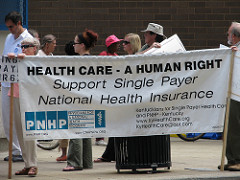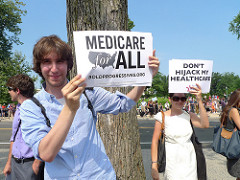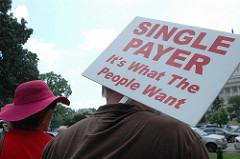 |
 |
 |
 |
 |
A lot of senators have been trying for many years to get more physicians.
However, there are two senators that are effectively killing these bills; Orrin Hatch of Utah and Fred Upton of Michigan.
The bills in question (S1148 and H.R. 2124) have been continually reintroduced since 2009 (as far as I can tell). They get sent to committees to be killed off. Hatch and Upton are the chairs of the respective committees. Hatch is chairman of the senate finance committe and Upton is the chair of the sub-committee on health care. The bills are not expected to make it out of the committees.
These bills would increase the number of physicians by 15k and provide for an annual increase of 3k physicians.
The surprising thing is that congress has been paying for the training of physicians through Medicaid for a very long time. The idea is that hospitals can't afford to pay the low salaries of resident physicans because they can't bill out their time. They are an expense. So, the medical community refuses to train physicians in residency at their own expense.
Congress pays the hospitals over 100k per year for a resident physician. The physician then gets paid around $13.00 per hour on average.
A physician shortage is nothing more than price fixing to keep an artificially high price. The benefit of the shortage goes to the doctors, hospitals, and insurance carriers. Not training doctors is simply a way to help artificially inflate care and support big business.
The shortage is no accident. To balance the budget, congress capped residencies back in 1997. The cap is still in effect today and nothing has changed. A really big doctor shortage is predicted by many economists and analysts. One thing is for sure, you can't expect the trade unions that benefit from the shortage (AMA) to fix it. And, since congress doesn't want to pay for it either, we sit at a stalemate.